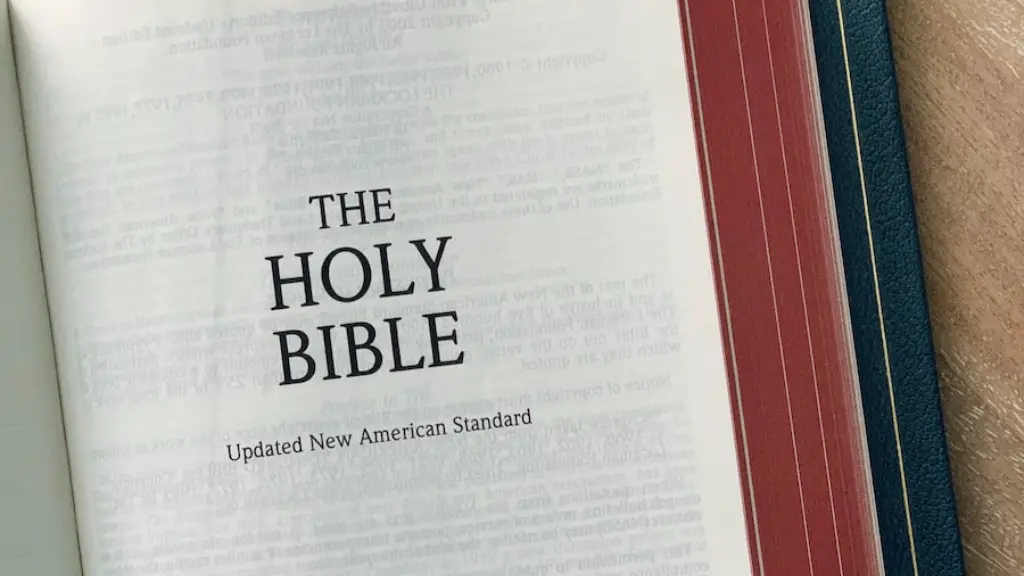Why Are Homosexual Acts Deemed as Wrong
Homosexuality has been a source of friction in many religious societies, particularly those that adhere to the Bible as a source of doctrine. Though same-sex relationships have been around since ancient times, Biblical scholars have debated whether or not they’ve been condoned. The Bible appears to address homosexual behavior in several instances, most notably in the stories of Sodom and Gomorrah. In these stories, the cities of Sodom and Gomorrah are destroyed because of the people’s wickedness. Particularly, the townspeople demand that two male visitors be handed over for them to “know” sexually. Though the phrase “to know” is used, it’s believed by many to be a reference to homosexual acts.
Furthermore, passages from Leviticus and Deuteronomy include commands against engaging in same-sex relations. Leviticus 18:22 reads, “You shall not lie with a male as with a woman; it is an abomination.” Deuteronomy states,”If a man lies with a male as with a woman, both of them have committed an abomination; they shall be put to death; their blood is upon them.” Though the passages are explicit, it’s important to note that both of them are included in passages that directly address the Israelites and their obedience to God.
Unpacking LGBT Concepts In The Bible
While some of the language in the Bible seems to condemn homosexual acts, there is debate as to what this language was intended to mean. There are many modern interpretations of the Bible that are more accepting of LGBT people. For example, one interpretation is that passages condemning homosexual acts can be seen as a condemnation of prostitution. This interpretation is based on the fact that homosexual acts were often used as a means of exploiting others, and because of this, it was seen as immoral.
The interpretation of these passages also depends on context. For example, Leviticus 20:26 says “If a man lies with a male as with a woman, both of them have committed an abomination; they shall be put to death; their blood is upon them.” This passage can be seen as a condemnation of rape; the intent of the passage was to protect people from violence.
Also, some Biblical scholars paint a very different picture of same-sex relationships in the Bible. Such passages as Judges 19:1-30 tell the story of an elderly Levite who travels with his concubine, discussing his romantic relationship with her openly and staying in a place of hospitality with her. This indicates that same-sex relationships in the Bible were seen in a different light.
Judging Homosexual Acts From a Modern Perspective
Nowadays, the attitude towards homosexual acts has changed drastically, especially in Christian churches, which now embrace LGBT individuals. Popular Christian denominations, such as the Episcopal Church and the United Church of Christ, embrace LGBT individuals in their congregations. Roman Catholic and Eastern Orthodox churches, while not strictly endorsing same-sex relationships, often adopt a tone of understanding and welcoming to LGBT individuals.
Also, some Christian denominations, such as the Metropolitan Community Church, promote LGBT rights and defend same-sex marriage. Many of these churches believe that homosexual acts are not sinful, and that God created humanity to be diverse and to embrace others, no matter their sexual orientation.
Church & State Contrasted
This is in contrast to some countries, such as Uganda, where homosexuality is still criminalized. This is often based on the idea that homosexual behavior is sinful and should not be condoned. In Uganda same-sex relationships are still punishable by life in prison.
The polar opposite of this is seen in countries such as the Netherlands, which became the first country to legalize same-sex marriage, in 2001. Since then, same-sex marriage has been accepted and celebrated in countries across Europe, Americas, Australia and Asia, which demonstrates the shift in attitudes toward same-sex relationships over the last few decades.
Religion as a Motivator
Religion has been and still is seen as a main motivator for either allowing or outlawing homosexual behavior in many parts of the world. In many parts of Africa and the Middle East, it is still seen as a sin and those who are caught engaging in same-sex acts are often persecuted. In other parts of the world, however, some churches are adapting and accepting homosexuality as a part of their religious doctrines.
The Role of Religion in LGBT Rights
Though some religious institutions have embraced LGBT people, there are still some religious factions that firmly oppose same-sex relationships. This opposition can often be seen as a major factor in debates surrounding LGBT rights, as well as religious freedom laws that have been passed in some countries. For example, the United States Supreme Court ruled in 2015 that same-sex marriage is a right protected by the Constitution, but some states still refuse to recognize it, citing religious freedom laws.
Religion can also play a role in the lack of legal protection that LGBT people in some countries have to face. In many countries, homosexuality is still criminalized, as it is deemed air or immoral act. This can be due to religious beliefs and influence, as well as cultural beliefs.
Conclusion
In conclusion, though the Bible has several passages condemning homosexual behavior, the interpretation of these passages has changed over time. While still some of the major religious institutions such as the Roman Catholic Church and Eastern Orthodox Church do not condone homosexuality, many other Christians agree that it is an acceptable way of life. Likewise, many countries around the world, from The Netherlands to Australia, have begun to recognize and accept same-sex relationships. As attitudes towards same-sex relationships shift, the role of religion and cultural beliefs in the debate has become increasingly apparent.

